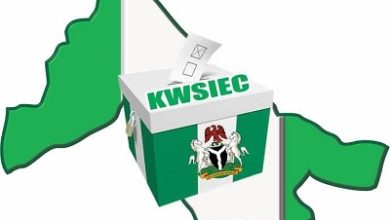Presidential, NASS Elections: Not yet Uhuru

The 2019 presidential and National Assembly elections have come and gone. But what have not gone are the echoes of the effect of the processes and of the Independent National Electoral Commission, INEC as well as the complains by stakeholders. Early morning of Wednesday, the election umpire announced the candidate of the All Progressives Congress (APC), Muhammadu Buhari as the winner of the election to defeat his closest rival, former vice president Atiku Abubakar. Buhari is the incumbent who was first elected in 2015 when he defeated the incumbent at the time, Goodluck Jonathan through a coalition of disparate political parties.
Although the tally for this election look virtually the same as the 2015 votes, there are however noticeable areas of concern. President Buhari scored a little bit above 15 million votes as against Atiku that garnered more than 11 million votes. This is almost similar to the previous election. However, it is interesting that the millions who registered and picked up their PVCs since the 2015 election do not seem to have made any appreciable impact on the ballot. It also means that the increased number of voters with PVCs generally haven’t impacted on the election significantly. Today we have over 70 million PVC holders yet barely 29-30 million turned up to vote.
In the same vein, the buzz caused by the sounds called third force was not felt in this election. None of the leading candidates made a dent on the process or on the main candidates. We begin to wonder what the motive was abinitio. Candidate of the Africa Alliance Congress (AAC), Omoyele Sowore could only get 30, 000 votes. That is miserly. Mrs Oby Ezekwesili having withdrawn at the hour could not be replaced, so she got just 7, 000 votes. Kingsley Moghalu, Fela Durotoye and others like them didn’t do any better. This election once again has proved that the country gravitates towards a two-party state. The multiplicity of parties hasn’t helped political culture development in our country. Nevertheless, at least over the years, it has helped clear political assassinations arising from intra-party squabble. People who claim to be popular now had the chance to go to another party to test their popularity. Ifeanyi Ubah of Capital Oil handsome it with Young Progressives Party (YPP) as he bagged a seat at the Senate.
But there were other worries. Now Atiku Abubakar has decided to head to the tribunal. This means he and his team are sufficiently convinced there were infractions during the process. In his statement dismissing the election, he worried about how elections in some parts of the country known for war on terrorism turned out high numbers during the voting on Saturday. He mentioned a place like Borno and hoped that INEC will be ready to audit its smart card readers deployed to some of the underlining stable states.
Atiku equally queried numbers from various states, including Akwa Ibom, where he alleged voters’ suppression. Voter suppression is the action used by politicians to ensure their opponents do not get high returns from places of comparative advantage. They do this by orchestrating violence leading to cancellations or none appearance of INEC ad-hoc staff. So election will be forced not to hold. So in Akwa Ibom, Atiku feels the figure of over 500, 000 is in conflict with the nearly one million votes of 2015. He feels something must be wrong, more so, since there were reported violence in isolated places in that state.
We however applaud Atiku for choosing the more honourable route of seeking redress in a law court. That is the democratic right of every Nigerian. He hasn’t called out his supporters for any reason. That shows a level of maturity in the face of obvious challenges. The road to the court may be expensive, tedious and narrow, it is still the best avenue for redressing constitutional issues. Atiku should not be harassed or blackmailed into dropping his impending litigation.
As we prepare for the state governorship and house of Assembly elections next week, it is imperative that we all have leaarnt our lessons. INEC in particular should show leadership in logistics distribution, government must improve on security and voter awareness should continue. The gaps noticed during and before the poll of Saturday should be corrected. We have not learned lessons if we continue to commit the same infractions at every turn. Ther





